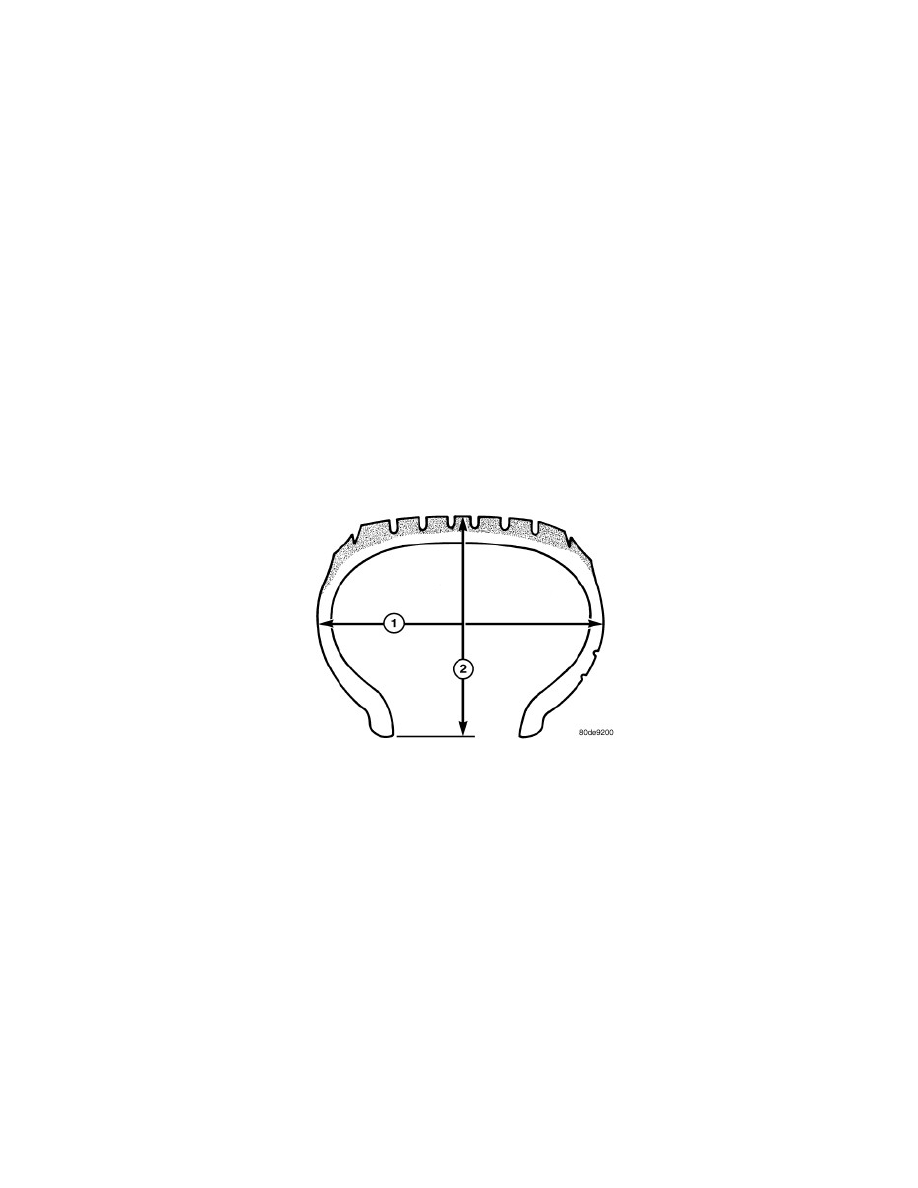Sebring Sedan V6-3.5L (2009)

Tires: Description and Operation
Tires
TIRE
Tires are designed and engineered for each specific vehicle. They provide the best overall performance for normal operation. The ride and handling
characteristics match the vehicle's requirements. With proper care they will give excellent reliability, traction, skid resistance, and tread life.
Driving habits have more effect on tire life than any other factor. Careful drivers will obtain, in most cases, much greater mileage than severe use or
careless drivers. A few of the driving habits which will shorten the life of any tire are:
-
Rapid acceleration
-
Severe application of brakes
-
High-speed driving
-
Taking turns at excessive speeds
-
Striking curbs and other obstacles
-
Operating vehicle with over or under inflated tire pressures
Radial ply tires are more prone to irregular tread wear. It is important to follow the tire rotation interval shown in the article on Tire Rotation. This will
help to achieve a greater tread-life potential.
TIRE IDENTIFICATION
Tire type, size, load index and speed rating are encoded in the letters and numbers imprinted on the side wall of the tire. Refer to the Tire Identification
chart to decipher the code. An All Season type tire will also have either M + S, M AND S or M - S (indicating mud and snow traction) imprinted on the
side wall. An Extra or Light Load marking "XL" or "LL" may also be listed on the sidewall.
For example purposes, tire size P225/60 R 16 97 T is used in the Tire Identification chart. P stands for Passenger tire. Sectional width (1) is 225mm.
Sectional height (2) is 60 percent of sectional width. R represents Radial construction. 16 is the wheel diameter in inches. 97 T is the tire manufacturers
load and speed ratings.
TIRE IDENTIFICATION
